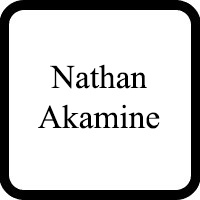Logan DUI-DWI Lawyer, Ohio
Zachuary Thorpe Meranda
✓ VERIFIEDThe Meranda Law Firm LTD was created in 2008 by Zachuary Meranda. In 2009, Zach took on a partner - his wife, Rossia Meranda, who contributed greatly ... (more)
Michael Jeffrey Hayes
✓ VERIFIEDLife can throw you a curveball. You need someone in your corner that understands good people can make mistakes. Michael also understands that good peo... (more)
Nathan Sei Akamine
✓ VERIFIEDNathan Akamine is a criminal defense lawyer proudly serving Columbus, Ohio, and the neighboring communities.
Jonathan T. Tyack
✓ VERIFIEDJonathan Tyack is a practicing lawyer in the state of Ohio handling criminal defense and personal injury matters.
Dustin Blake
FREE CONSULTATION
CONTACTFREE CONSULTATION
CONTACTFREE CONSULTATION
CONTACTFREE CONSULTATION
CONTACTFREE CONSULTATION
CONTACTFREE CONSULTATION
CONTACT




